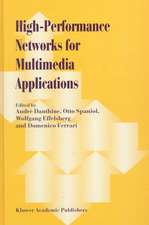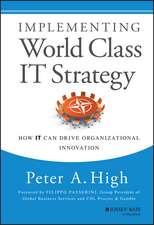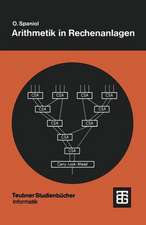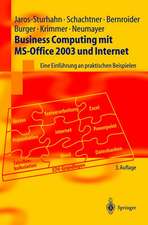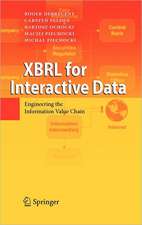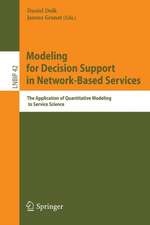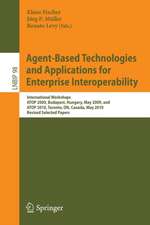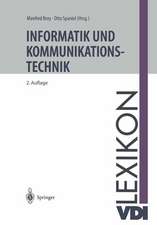Multiagent Engineering: Theory and Applications in Enterprises: International Handbooks on Information Systems
Editat de Stefan Kirn, Otthein Herzog, Peter Lockemann, Otto Spaniolen Limba Engleză Paperback – 5 mai 2006
| Toate formatele și edițiile | Preț | Express |
|---|---|---|
| Paperback (2) | 1295.21 lei 6-8 săpt. | |
| Springer Berlin, Heidelberg – 5 mai 2006 | 1295.21 lei 6-8 săpt. | |
| Springer Berlin, Heidelberg – 30 noi 2010 | 1966.05 lei 6-8 săpt. |
Din seria International Handbooks on Information Systems
- 18%
 Preț: 974.19 lei
Preț: 974.19 lei - 20%
 Preț: 1068.02 lei
Preț: 1068.02 lei - 18%
 Preț: 1241.90 lei
Preț: 1241.90 lei -
 Preț: 411.26 lei
Preț: 411.26 lei - 18%
 Preț: 1249.93 lei
Preț: 1249.93 lei - 20%
 Preț: 2213.67 lei
Preț: 2213.67 lei - 20%
 Preț: 1930.26 lei
Preț: 1930.26 lei - 20%
 Preț: 1301.78 lei
Preț: 1301.78 lei - 18%
 Preț: 1847.84 lei
Preț: 1847.84 lei - 20%
 Preț: 1294.36 lei
Preț: 1294.36 lei - 24%
 Preț: 1051.16 lei
Preț: 1051.16 lei - 18%
 Preț: 1226.24 lei
Preț: 1226.24 lei - 18%
 Preț: 1389.30 lei
Preț: 1389.30 lei - 18%
 Preț: 962.03 lei
Preț: 962.03 lei - 18%
 Preț: 1554.05 lei
Preț: 1554.05 lei - 18%
 Preț: 1554.23 lei
Preț: 1554.23 lei - 20%
 Preț: 1292.40 lei
Preț: 1292.40 lei - 18%
 Preț: 1234.94 lei
Preț: 1234.94 lei - 18%
 Preț: 968.03 lei
Preț: 968.03 lei - 18%
 Preț: 2331.12 lei
Preț: 2331.12 lei - 15%
 Preț: 600.90 lei
Preț: 600.90 lei - 18%
 Preț: 1576.04 lei
Preț: 1576.04 lei - 47%
 Preț: 1130.25 lei
Preț: 1130.25 lei - 9%
 Preț: 1117.35 lei
Preț: 1117.35 lei
Preț: 1295.21 lei
Preț vechi: 1619.01 lei
-20% Nou
Puncte Express: 1943
Preț estimativ în valută:
247.83€ • 258.76$ • 205.12£
247.83€ • 258.76$ • 205.12£
Carte tipărită la comandă
Livrare economică 05-19 aprilie
Preluare comenzi: 021 569.72.76
Specificații
ISBN-13: 9783540314066
ISBN-10: 3540314067
Pagini: 644
Ilustrații: XIV, 626 p. 153 illus.
Dimensiuni: 155 x 235 x 40 mm
Greutate: 1.07 kg
Ediția:2006
Editura: Springer Berlin, Heidelberg
Colecția Springer
Seria International Handbooks on Information Systems
Locul publicării:Berlin, Heidelberg, Germany
ISBN-10: 3540314067
Pagini: 644
Ilustrații: XIV, 626 p. 153 illus.
Dimensiuni: 155 x 235 x 40 mm
Greutate: 1.07 kg
Ediția:2006
Editura: Springer Berlin, Heidelberg
Colecția Springer
Seria International Handbooks on Information Systems
Locul publicării:Berlin, Heidelberg, Germany
Public țintă
ResearchCuprins
Management Summary.- Management Summary.- What Agents Are and What They Are Good For.- Agents.- From Agents to Multiagent Systems.- Flexibility of Multiagent Systems.- Application Examples I: Agent.Enterprise.- Agent.Enterprise in a Nutshell.- Integrated Process Planning and Production Control.- Benchmarking of Multiagent Systems in a Production Planning and Control Environment.- Distributed Hierarchical Production Control for Wafer Fabs Using an Agent-Based System Prototype.- Supply Chain Event Management With Software Agents.- Trust-Based Distributed Supply-Web Negotiations.- Application Examples II: Agent.Hospital.- Agent.Hospital — Health Care Applications of Intelligent Agents.- Artificial Software Agents as Representatives of Their Human Principals in Operating-Room-Team-Forming.- Agent-Based Information Logistics.- Agent-Based Patient Scheduling in Hospitals.- Adaptivity and Scheduling.- Active, Medical Documents in Health Care.- Self-Organized Scheduling in Hospitals by Connecting Agents and Mobile Devices.- Agent Engineering.- The Engineering Process.- Requirements Engineering.- Interaction Design.- Architectural Design.- Semantics for Agents.- Towards Dependable Agent Systems.- Tools and Standards.- From Testing to Theorem Proving.- Evaluation.- Benchmarking of Multiagent Systems.- Simulation.- Legal Consequences of Agent Deployment.
Caracteristici
Gives an overview of the field and contains descriptions of concrete applications Describes how to identify and address the relevant technical problems Explains how to engineer, integrate and test multi-agent systems for real world applications Detailed descriptions of the development of two large-scale multi-agent systems: Agent.Hospital and Agent.Enterprise Demonstrates clearly that multi-agent technology has a great potential for innovative information systems, if a high degree of flexibility of the overall systems is required, e.g. because human actions and technical systems exhibit a great degree of local autonomy, or if the work environment is highly dynamic Includes supplementary material: sn.pub/extras




